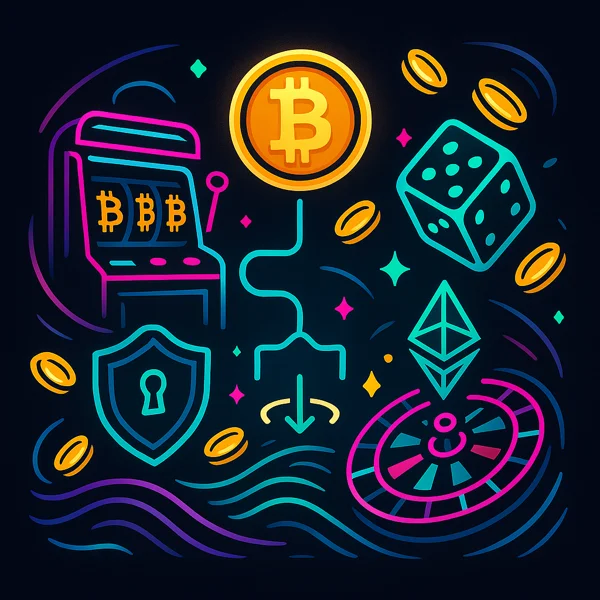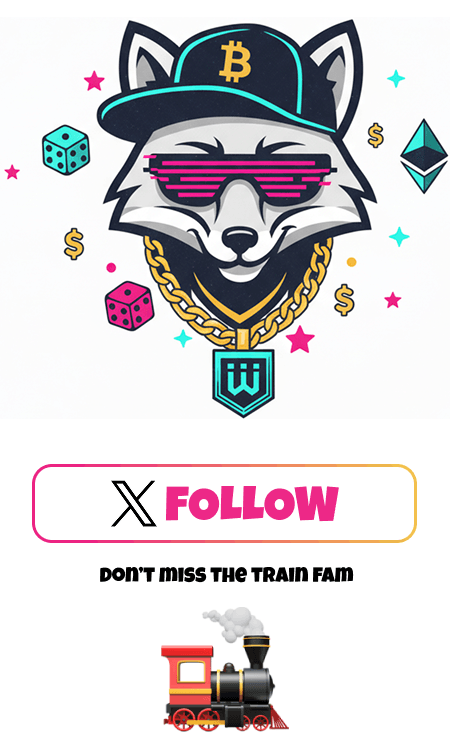On-chain casinos are the purest form of Web3 gambling. No accounts, no KYC, no custodians — just connect your wallet and play directly on smart contracts. Games like dice, crash, and roulette are provably fair and settled on-chain. Projects like ZKasino, Euphoria, and WINk pushed this vision, while hybrids like Stake stayed centralized. The question is: are on-chain casinos the future of gambling, or will UX and liquidity hold them back?
Background & Why It Matters
The earliest Bitcoin casinos like Primedice were already “crypto-first,” but Ethereum enabled true smart contract casinos around 2017 with projects like Edgeless. By 2019, Tron’s WINk dominated gambling dApps with play-to-mine tokenomics. More recently, zk-rollups and multi-chain ecosystems brought in new names like ZKasino and Euphoria. On-chain casinos matter because they embody crypto’s ethos: transparency, provable fairness, and censorship resistance.
How On-Chain Casinos Work
- Games run as smart contracts, not centralized servers.
- RNG handled by verifiable randomness (Chainlink VRF, Pyth).
- Players deposit directly from wallets.
- Bets are auto-settled on-chain, payouts sent back instantly.
- Liquidity pools often act as “the house,” with LPs earning a share of the edge.
This removes custodians, but gameplay can feel slower or clunkier compared to slick hybrids.
Top On-Chain Casinos
- ZKasino → zk-rollup powered, wallet-native. Infamous for a $30M presale controversy in 2024.
- Euphoria → multi-chain, fully degen-friendly. Strong community, niche adoption.
- Edgeless → Ethereum pioneer from 2017 with a 0% house edge promise. Historically important, but largely inactive today.
- WINk (Tron) → massive during 2019–2020 cycle with $WIN token staking. Still running, but faded with Tron’s decline.
- FortuneJack → hybrid-leaning, but added provably fair games and crypto support.
- DuckDice, TrustDice → smaller dApps that keep classic on-chain dice games alive.
Safety & Risks
Pros
- Wallet-native, no KYC.
- Fully provably fair and transparent.
- Resistant to censorship.
Cons
- Liquidity is often shallow.
- Many tokens tied to casinos are highly volatile.
- UX can be slow and confusing for casual players.
- Higher rug risk in small or new dApps.
What Players Say
- Fans: “On-chain is the only true Web3 gambling — trustless and transparent.”
- Critics: “Low liquidity and dead tokens, hybrids are way more fun.”
- Community chatter: ZKasino and Euphoria spark hype in degen groups, while Edgeless and WINk are mostly remembered for nostalgia or rug jokes.
Who Uses On-Chain Casinos
- Privacy maxis who refuse KYC.
- Hardcore degens who want wallet-native gambling.
- Token stakers farming ecosystem rewards.
- Historians who still talk about ICO-era projects.
- Not casuals — most normies go to hybrids like Stake or BC.Game.
Real Stats
- ZKasino raised ~$30M in its presale (2024), then faced heavy backlash.
- Euphoria sees several thousand daily wagers across multiple chains (DappRadar 2024).
- WINk peaked at $300M market cap in 2021, now under $30M.
- Edgeless raised $2.5M in its 2017 ICO but lost most traction after 2020.
- On-chain casinos overall are still only a fraction of hybrid casino traffic.
Degen Tip
Play small and treat on-chain casinos like experiments. Always stick to stablecoins where possible, and don’t park your bankroll in native tokens.
Final Degen Verdict
On-chain casinos are the truest version of Web3 gambling — transparent, wallet-first, and provably fair. But liquidity, UX, and community trust keep them behind hybrid casinos in scale. For purists and early adopters, wagmi. For mainstream gamblers chasing polish and volume, ngmi. On-chain casinos are the soul of crypto gambling, but not yet its crown.


